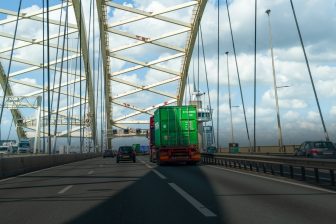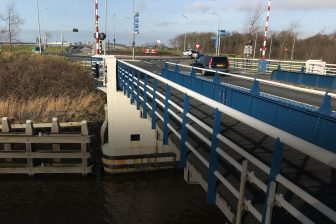More competition in public transport – with safeguards
Brussels, Belgium –
The European Parliament approved with amendments, at a second-reading vote, new rules on public passenger transport services by rail and by road which seek to rebalance the award of contracts for these services between the public and private sectors.
The aim of the regulation – which is prompted by the trend to greater involvement of the private sector in public transport – is to overhaul rules on the awarding of public service contracts for passenger transport by repealing old EU legislation and replacing existing national rules on competition in the public transport sector with standard Europe-wide rules.
EU rules will be laid down on: contracts between authorities and operators; compensation of operators for fulfilling public service requirements; exclusive rights; managing competition; and transparency.
Length of franchises
To prevent public authorities awarding long-term franchises to operators with whom they have close relationships, the Commission’s original draft regulation proposed that firms be invited to tender for five-year contracts. At its first reading on 14 November 2001, Parliament voted for greater continuity for franchise contracts, saying they should be allowed to run for eight years for bus services and 15 years for rail services.
Member States finally agreed a common position within the Council after six years, in 2006. On the question of length of contracts, it followed Parliament’s thinking but went even further, stipulating a maximum of ten years for contracts for coach and bus services (but still fifteen years for rail). Parliament 2007-05-10 voted to endorse this position when it voted on a report by Erik Meijer (GUE/NGL, NL) together with a package of compromise amendments agreed with the Council, which should mean that this legislation goes through without the need for a conciliation procedure.
Three options for awarding contracts
Under the new legislation, a local authority firstly has the option of providing public passenger transport services itself or awarding contracts directly to an "internal operator" (a legally distinct entity over which the authority exercises control similar to that exercised over its own departments).
A second option is to contract them out, issuing a call for tender if the services are above a certain size or value.
The third option – in the case of smaller contracts – is for the authorities to award public service contracts directly (i.e. without a call for tender). This will be allowed either where their average annual value is estimated at less than €1 million or where fewer than 300,000 kilometres of services are concerned.
However, special arrangements will apply to contracts directly awarded to smaller companies. Here Parliament changed the definitions. It decided that for small and medium-sized firms the figures should be less than €2 million (the Council proposed €1.7 million) and 600,000 kilometres (Council: 500,000). MEPs also said the definition of a small or medium-sized firm should be one operating not more than 23 vehicles (Council: 20).
Minimum standards for workers, passengers and the environment
MEPs also voted to allow the national authorities to lay down minimum quality and social standards for public service operators, e.g. regarding working conditions, passenger rights, the needs of persons with reduced mobility and environmental protection.
Lastly, MEPs voted for the regulation to enter into force within two years (Council: three years) and for the new rules to take effect within 10 years (Council: 12 years) of that entry into force.
REF.: 20070507IPR06402
U las zojuist één van de gratis premium artikelen
Onbeperkt lezen? Profiteer nu van de introductieaanbieding voor € 10,- per maand.
Bent u al abonnee?



